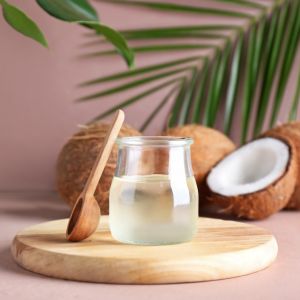Healthy Oils for Eating and Heating
Do you know what oils are healthy for eating and heating?
If you change your oil, you can improve your health. After all, Oils ain’t Oils!
Never before have we seen such a selection of oils on the supermarket shelf and the range is still growing!
Many labels suggest they are healthy and rich in Omega 3 but rarely tick the box.
Everyone, the message is simple: change your oil, improve your health.
How good are they really for our health?
Which one is better?
I remember the days of cooking and baking with animal fat – hmmm, we were much healthier then!
It is a fact that our body needs fat in order to stay healthy.
The “fat-free fad” has been most detrimental to our health. Over the past 60 years, since the beginning of industrialisation after World War 2, our food has changed by means of equipment and processing.
It has given the corporations higher profits and yields; however, it has not improved the quality of food.
Oil is one of the industries which benefitted handsomely by use of machinery due to the invention of heat extracting the oil from the seeds instead of the cumbersome manual process.
Unfortunately, this heating method destroys the highly-fragile essential fatty acid enzymes, especially Omega 3 and the good Omega 6.
However, it gives the oil an almost endless shelf life.
We consume too much of the bad Omega 6, the hydrogenated oil. Our body cannot produce these essential fatty acids (EFA) and we need to consume these every day, ideally in the form of food, not pills.
Another factor to deal with is the genetic modification of many plants used for oil production. Eating healthy is confusing – animal fats are supposedly not good for us and the oils are depleted of nutrition?
Flaxseed Oil
Here comes the good news! The best oil is cold pressed Flaxseed oil, also known as Linseed oil.
It has the highest content of Omega 3, 58 percent, more than fish oil!
It also contains Omega 6 to a lesser degree.
This oil must not be heated; it has to be totally shielded from light and kept under refrigeration.
The lifespan is limited and it should be consumed ideally within three months of production.
I only use Stoney Creek from Victoria and Barlean’s, imported from Canada, but it is not always available.
You will not find quality cold pressed Flaxseed oil on the supermarket shelf but at the health food stores in the refrigerated section. Avoid purchasing cold-pressed flaxseed oil from supermarket shelves; it will most likely be rancid and taste bitter.
It is worth noting that you can store Flaxseed oil in the freezer to retain freshness.
Olive Oil
Cold pressed oil, such as Olive oil, should be stored in a dark place. It is best to buy oil in small bottles for quick consumption.
Coconut Oil
For heating I can only recommend organic virgin Coconut oil, also called coconut butter!
It comes in a glass jar in various sizes. Some supermarkets now also stock it, but you may not find it in the oil section. Coconut butter solidifies when cold and it is liquid when the temperature is high. It does not become toxic when heated, and can withstand high temperatures. It has many health benefits outside cooking and baking.
Coconut oil does not require refrigeration and does not become rancid.
Cold Pressed Oil
Please remember that the terminology “cold pressed” is one of the most over-used descriptions in this industry! Cold pressed means extracting the oil at below 40 degrees heat! Anything above this temperature destroys the essential fatty acids so necessary for our health.
Hence, I stick to the brands which give a guarantee of being “cold pressed” with quick turn over!
Added Omega 3
Please note, if cooking oil praises “added Omega 3” as I have seen in supermarkets … don’t bother!
If it has not already gone rancid in this large container, it will, of course, be destroyed by the cooking process.
My Favourite Salad Dressing Recipe
Salad dressing (basic) using Flaxseed oil:
2 tbsp flaxseed oil
3 tbsp Apple cider vinegar (I use the one with mother)
Pinch of pure sea salt
Fresh ground pepper to taste
Put into a glass jar and shake well. Add some water if it tastes too strong.
Vary by adding garlic or other fresh herbs to suit your palate.
Reference:
Understanding fats and oils, Michael T. Murray, N.D. and Jade Beutler RRT, RCP

